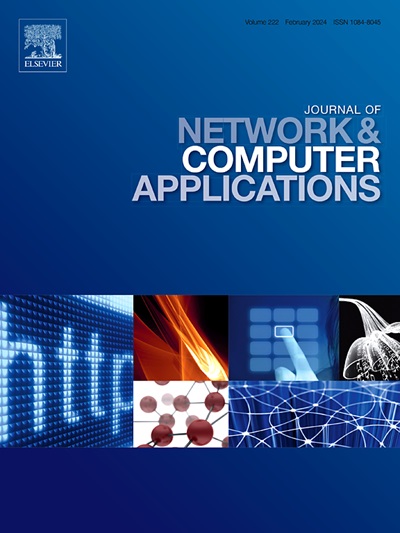Integrated probabilistic clustering and Deep Reinforcement Learning for bias mitigation and device heterogeneity of Federated Learning in edge networks
IF 8
2区 计算机科学
Q1 COMPUTER SCIENCE, HARDWARE & ARCHITECTURE
引用次数: 0
Abstract
Federated Learning (FL) enables decentralized and collaborative training on resource-constrained Edge Devices (EDs) while preserving data privacy by avoiding raw data transmission. However, traditional FL approaches face challenges such as non-independent and identically distributed (non-IID) data, biased model aggregation due to device heterogeneity, and inefficiencies caused by stragglers during model updates. We propose a novel Hierarchical Deep Reinforcement Learning-based Probabilistic Federated Learning (Hier-FedDRL) strategy to address these limitations. This framework combines local and central Deep Reinforcement Learning (DRL) agents with a probabilistic clustering approach to manage heterogeneous devices and optimize resource allocation dynamically. Local DRL agents optimize intra-cluster operations, including training and resource distribution, while the central DRL agent oversees global model updates and inter-cluster coordination.
To ensure balanced aggregation and mitigate biases, the proposed framework employs Gaussian Mixture Models (GMMs) for clustering EDs based on their data distributions and resource characteristics. Additionally, a dynamic contribution-based aggregation technique is introduced to fairly weigh updates from diverse EDs, reducing biases in the global model. The performance of Hier-FedDRL is evaluated in a cloud-based setup, where Docker containers are used to simulate EDs and Google Kubernetes Engine clusters for cloud orchestration. Experimental results over benchmark datasets demonstrate that the proposed Hier-FedDRL achieves 4%–6% higher accuracy, reduces convergence time by 7%–10%, and lowers bias in the global model by 25%, outperforming state-of-the-art FL approaches while effectively addressing data and resource heterogeneity.
集成概率聚类和深度强化学习用于边缘网络中联邦学习的偏差缓解和设备异质性
联邦学习(FL)可以在资源受限的边缘设备(ed)上进行分散和协作培训,同时通过避免原始数据传输来保护数据隐私。然而,传统的FL方法面临着诸如非独立和同分布(non-IID)数据、由于设备异构性而导致的有偏差的模型聚集以及模型更新过程中离散者导致的低效率等挑战。我们提出了一种新的基于分层深度强化学习的概率联邦学习(her - feddrl)策略来解决这些限制。该框架将局部和中央深度强化学习(DRL)代理与概率聚类方法相结合,以管理异构设备并动态优化资源分配。本地DRL代理优化集群内的操作,包括培训和资源分配,而中央DRL代理监督全局模型更新和集群间协调。为了保证均衡聚集和减少偏差,本文提出的框架采用高斯混合模型(gmm)基于数据分布和资源特征对EDs进行聚类。此外,引入了一种动态的基于贡献的聚合技术来公平地权衡来自不同ed的更新,从而减少了全局模型中的偏差。Hier-FedDRL的性能在基于云的设置中进行评估,其中Docker容器用于模拟ed和谷歌Kubernetes引擎集群,用于云编排。在基准数据集上的实验结果表明,提出的her - feddrl的准确率提高了4%-6%,收敛时间减少了7%-10%,全局模型的偏差降低了25%,在有效解决数据和资源异质性的同时,优于最先进的FL方法。
本文章由计算机程序翻译,如有差异,请以英文原文为准。
求助全文
约1分钟内获得全文
求助全文
来源期刊

Journal of Network and Computer Applications
工程技术-计算机:跨学科应用
CiteScore
21.50
自引率
3.40%
发文量
142
审稿时长
37 days
期刊介绍:
The Journal of Network and Computer Applications welcomes research contributions, surveys, and notes in all areas relating to computer networks and applications thereof. Sample topics include new design techniques, interesting or novel applications, components or standards; computer networks with tools such as WWW; emerging standards for internet protocols; Wireless networks; Mobile Computing; emerging computing models such as cloud computing, grid computing; applications of networked systems for remote collaboration and telemedicine, etc. The journal is abstracted and indexed in Scopus, Engineering Index, Web of Science, Science Citation Index Expanded and INSPEC.
 求助内容:
求助内容: 应助结果提醒方式:
应助结果提醒方式:


